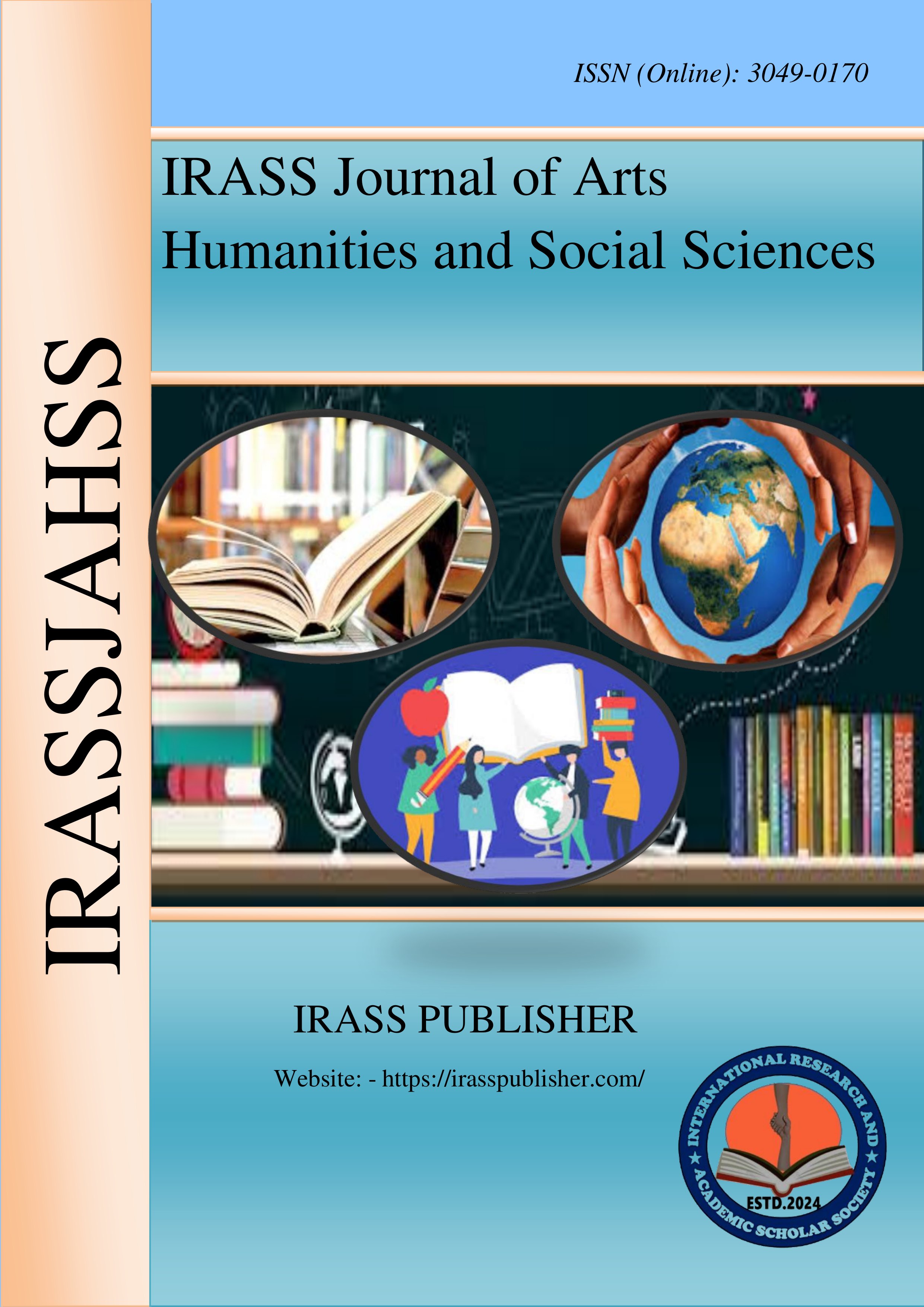CRIMES AFFECTING RURAL AFRICAN COMMUNITIES, INCLUDING LIVESTOCK THEFT, ILLEGAL MINING, WATER THEFT, LAND-RELATED CONFLICTS, AND ORGANISED CRIME
Sr No:
Page No:
60-75
Language:
English
Authors:
Dr. John Motsamai Modise*
Received:
2025-05-16
Accepted:
2025-05-29
Published Date:
2025-05-02
GoogleScholar:
Click here
Abstract:
This study investigates the nature, causes, and consequences of rural crime in
African communities, with a particular focus on livestock theft, illegal mining, water theft, landrelated conflicts, and organised crime. The research examines the socio-economic,
environmental, and governance dynamics that underpin rural crime and aims to provide practical
solutions to reduce its prevalence and impact. The main problem addressed by this study is the
limited understanding of how rural crime manifests in Africa, especially in areas where
traditional and formal legal systems often coexist, and the lack of effective crime prevention
strategies in these regions. The purpose of the study is to offer a comprehensive exploration of
rural crime in Africa, considering both local and national perspectives, and to identify key
factors driving these crimes. It further seeks to understand the role of law enforcement, local
governance, and community engagement in crime prevention. Through literature review and
fieldwork, this study explores the extent of rural crime and highlights the gaps in existing
policies and interventions. The main topic of the research centers around the prevalence of
specific rural crimes and their effects on communities, particularly in relation to economic
losses, social instability, and environmental damage. Key arguments include the
interconnectedness of socio-economic challenges and crime, the role of weak law enforcement in
rural areas, and the importance of community-based crime prevention. Moreover, the study
highlights the impact of climate change and resource scarcity on escalating crime rates in rural
settings. The methodology employs a systematic approach, combining qualitative and
quantitative methods. Data collection involves interviews with rural residents, law enforcement
officers, and community leaders, as well as surveys on crime incidence and prevention measures.
The study also draws on case studies from selected rural regions in Southern Africa, analysing
patterns of criminal activity and the effectiveness of local crime control strategies. The
significance of this research lies in its ability to fill critical gaps in the existing body of
knowledge on rural crime in Africa, offering policy recommendations that can inform local,
national, and regional interventions. The implications of the study extend to improving
community safety, strengthening law enforcement capabilities, and promoting sustainable
resource management practices. By providing practical solutions to address rural crime, the
research aims to reduce crime-related violence, foster economic development, and ensure better
social cohesion in rural areas. In conclusion, the study underscores the necessity of holistic and
collaborative efforts involving communities, law enforcement agencies, and policymakers to
effectively combat rural crime. The findings point to the need for community-driven crime
prevention strategies, formalization of informal economies, and improved governance
mechanisms to curb rural crime and enhance long-term social and economic stability.
Keywords:
Rural Crime, Livestock Theft, Illegal Mining, Water Theft, Land-related Conflicts, Organised Crime,Community Policing, Law Enforcement, Crime Prevention, Traditional Authorities, Land Disputes, Sustainable Resource Management.
Journal: IRASS Journal of Arts, Humanities and Social Sciences
ISSN(Online): 3049-0170
Publisher: IRASS Publisher
Frequency:
Monthly
Language:
English

